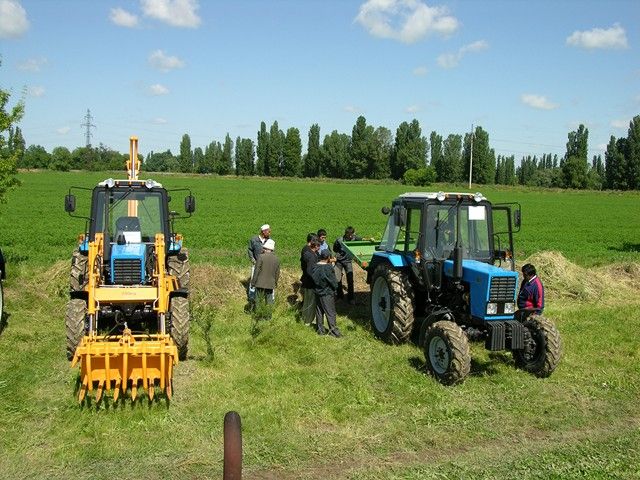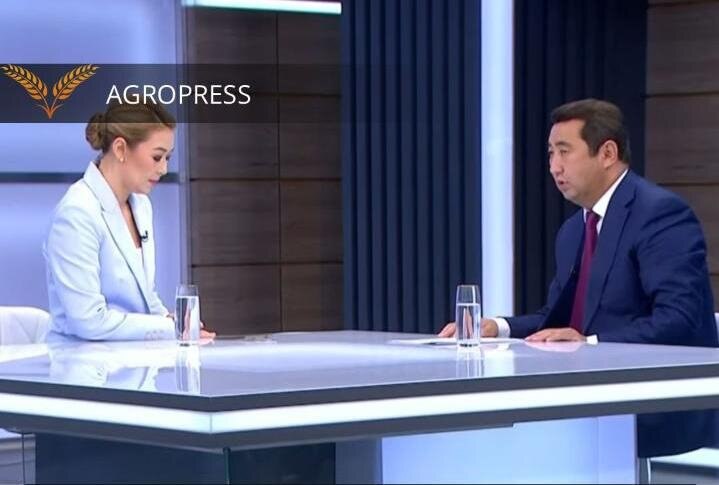BISHKEK (TCA) — On January 19, some members of Kyrgyzstan’s parliament said that the Government’s work to develop agriculture was unsatisfactory.
According to the Ministry of Agriculture, Food Industry and Reclamation of Kyrgyzstan, 11 new processing enterprises opened in the regions in 2017, but this is not enough.
Farmers had to export fresh fruits and vegetables to neighboring countries for a pittance and then Kyrgyzstan imported canned products that are much more expensive, the MPs said.
Local farmers have asked MPs to help them open mini-processing enterprises. The Agriculture Ministry is working with its own programs while local authorities have their own ones, and they are not coordinated, the MPs concluded. In addition, the lending terms are not beneficial for farmers.
Leader of the Social Democratic Party of Kyrgyzstan (SDPK) parliamentary faction Isa Omurkulov believes that there is no hope for the officials who have done nothing for the agriculture sector development.
The ministry employs about five thousand people with a 1.2 billion soms annual salary fund but there are no results of their work, because the agrarian sector is in decline. “Why do we need such a ministry?” he asked.
Kyrgyzstan cannot provide itself with basic foods and this leads to high import dependence. Currently, the country fully provides itself with three basic products — potatoes, vegetables and fruit, and milk and dairy products, the Agriculture Ministry said.
Food supply for the domestic market of Kyrgyzstan is among the problems of national economic security.
Government’s position
Later on January 19, Prime Minister of Kyrgyzstan Sapar Isakov commented on the criticism of the Agriculture Ministry by the SDPK parliamentary faction.
Reforms have already begun in the Ministry and in the agrarian sector, Isakov said. The reforms provide for revising the Ministry’s functions within the Taza Koom (Clean Society) Government’s program and improving conditions for farmers, including strengthening the export potential, increasing the competitiveness of local producers and their entry into new markets, as well as creating effective agricultural cooperatives, the Prime Minister said.
After a thorough analysis, the state apparatus will be reduced, including in the Ministry of Agriculture, he added.
According to Isakov, the Government is currently working to attract investments in the agricultural sector, including the construction of logistics hubs and veterinary and phytosanitary laboratories. Four veterinary laboratories have already been built in the country and 12 laboratories reconstructed.
However, many of the problems voiced by the parliament deputies do indeed take place, Isakov added. There are shortcomings in the agricultural sector development which have been accumulated over the years.
“The Government is open to proposals from the deputies to improve the work of the relevant state bodies and is ready to hold consultations with interested parties. We would like to get specific proposals in this regard,” Isakov concluded.
More rights needed
The Agriculture Ministry is often criticized for its incompetence and untimely adoption of important decisions. The ministry is now busy with gathering information from the fields, drawing up all kinds of reports, and drafting useless programs.
Meanwhile, it is impossible to ignore the work of the Ministry’s officials who often visit farmers advising them on agrarian issues. They conduct dialogues with local authorities on supporting farmers and creating cooperatives.
The Ministry’s results are poor partly because it has few rights in implementing agrarian policy in the country. The Ministry has no rights to determine purchasing prices for agricultural products, to build processing plants and allocate loans.
Experts advise giving the Ministry more rights in implementing agrarian policy, using the experience of advanced countries. For instance, in Japan the state buys up all the rice grown by farmers at high prices, and then sells it to processing enterprises at a lower price. Thus, the state subsidizes farmers and does not let the processing enterprises go bankrupt. The state budget covers the price difference.
Experts advise to accumulate all funds for farmers in the Agriculture Ministry, including provision of farmers with machinery, seeds and fertilizers. In this case, the Government will clearly know whom to ask for the sector’s development.
Barriers to export
At the international exhibition-fair, recently held in Moscow at the Food City agro-cluster, Kyrgyzstan’s producers concluded contracts with four Russian companies, although more than forty companies were interested in Kyrgyz products. Large Russian purchasing centers and trade networks are ready to cooperate with Kyrgyzstan but its producers still cannot provide sufficient amounts of products.
Companies from 21 countries participated in the fair. The ecological cleanness of products from Kyrgyzstan attracted the fair participants but the packaging does not meet international standards, the organizers said.
The agriculture development should be based on the promotion of environmentally friendly agricultural products, but such products should have a higher added value for efficient agricultural chains from the producer to the consumer.
Turkey is interested in the supply of environmentally friendly meat from Kyrgyzstan, in particular from the Naryn province, but it is necessary to build a meat processing plant and a veterinary laboratory in that region.
Local authorities suggested Turkish companies to invest in the plant’s construction. When a veterinary laboratory is established and local producers have all the necessary certificates, they will be ready to export their products to other countries. China and other neighboring countries are also interested in importing meat from Naryn.








